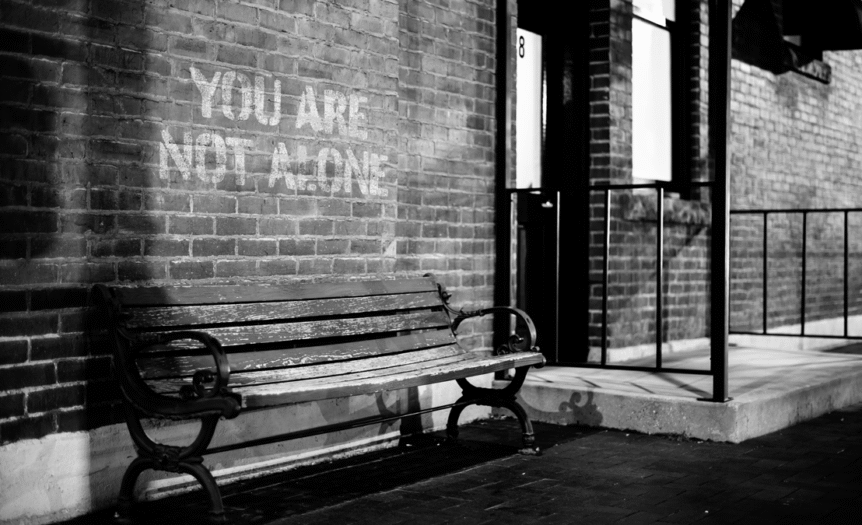Divorce is a time of challenge and uncertainty, but working with a divorce coach can help ease the emotional pain, fear and the sense of being overwhelmed. It is the bridge into a new life of endless possibilities.
So, what is the difference between an attorney, therapist and divorce coach? An attorney is the captain of your ship and is there to give you the best legal advice, guide you through the legal complexities of the divorce process and draft the best possible settlement agreement for you.
Many of my clients come to me upset because their expectations of the client-attorney relationship are not reality. They are expecting their attorney to be their best friend, to console them, to answer their calls on a Friday night because their ex has not picked up the kids as planned and tell them what to do. They expect warm fuzzies from their legal counsel. I hate to be the bearer of bad news, but that is not going to happen because that is not their job. They are not hand-holders. And you know what? You don’t want them to be. You want them completely focused on your case, not you.
That being said, a divorce, no matter how amicable it is, is still an event in your life that will rock the very foundation you stand on. Therefore, you need support, a cheerleader and a Jiminy Cricket — someone who will listen, celebrate your good moments and be your voice of reason when anger is bubbling up.
And what about a therapist? How is a therapist different than a divorce coach? A therapist will diagnose, look into your past with depth and schedule you for an hour each week. Typically, they don’t have the knowledge and background of the divorce process that a divorce coach has. They are more clinically oriented, whereas a coach puts emphasis on what is needed for you to move forward. A divorce coach takes a holistic, team approach with you.
What Can You Expect from Your Coach during Your Divorce?
- Help in creating a road map through divorce and after
- Someone who understands the divorce process
- Co-parent planning and communication skills
- Solution-based guidance
- Conflict management
- Aid in reducing stress and managing emotions
- Organizational assistance
- Identification and prioritization of your concerns
- Assistance when needed with your attorney
- Someone who keeps you motivated and your eye on the big picture
What Can You Expect from Your Coach after Your Divorce?
- Post-divorce checklist
- Defined action plan
- Employment options
- Self-rediscovery/finding your purpose
- Single parent guidance
- Post-divorce emotional support
- Empowerment
- Different approaches to problem solving
- Help in dealing with a difficult ex
- Navigating challenges of being single again
Divorce coaching is an investment in yourself. It is about empowering you to unlock any old thinking patterns that will hold you back and equip you with new tools to propel you forward into the life you envision for yourself post-divorce.










 Deering Estate
Deering Estate
 Massage Envy South Miami
Massage Envy South Miami
 Calla Blow Dry
Calla Blow Dry
 My Derma Clinic
My Derma Clinic
 Sushi Maki
Sushi Maki
 Sports Grill
Sports Grill
 The Healthy Kitchen
The Healthy Kitchen
 Golden Rule Seafood
Golden Rule Seafood
 Malanga Cuban Café
Malanga Cuban Café

 Kathleen Ballard
Kathleen Ballard
 Panter, Panter & Sampedro
Panter, Panter & Sampedro
 Vintage Liquors
Vintage Liquors
 The Dog from Ipanema
The Dog from Ipanema
 Rubinstein Family Chiropractic
Rubinstein Family Chiropractic
 Your Pet’s Best
Your Pet’s Best
 Indigo Republic
Indigo Republic




 ATR Luxury Homes
ATR Luxury Homes


 2112 Design Studio
2112 Design Studio
 Hamilton Fox & Company
Hamilton Fox & Company
 Creative Design Services
Creative Design Services
 Best Pest Professionals
Best Pest Professionals
 HD Tree Services
HD Tree Services
 Trinity Air Conditioning Company
Trinity Air Conditioning Company
 Cisca Construction & Development
Cisca Construction & Development
 Mosquito Joe
Mosquito Joe
 Cutler Bay Solar Solutions
Cutler Bay Solar Solutions


 Miami Royal Ballet & Dance
Miami Royal Ballet & Dance
 Christopher Columbus
Christopher Columbus
 Pineview Preschools
Pineview Preschools
 Westminster
Westminster
 Carrollton
Carrollton
 Lil’ Jungle
Lil’ Jungle
 Frost Science Museum
Frost Science Museum
 Palmer Trinity School
Palmer Trinity School
 South Florida Music
South Florida Music
 Pinecrest Orthodontics
Pinecrest Orthodontics
 Dr. Bob Pediatric Dentist
Dr. Bob Pediatric Dentist
 d.pediatrics
d.pediatrics
 South Miami Women’s Health
South Miami Women’s Health

 The Spot Barbershop
The Spot Barbershop
 My Derma Clinic
My Derma Clinic




 Miami Dance Project
Miami Dance Project

 Rubinstein Family Chiropractic
Rubinstein Family Chiropractic
 Indigo Republic
Indigo Republic

 Safes Universe
Safes Universe
 Vintage Liquors
Vintage Liquors
 Evenings Delight
Evenings Delight





 Atchana’s Homegrown Thai
Atchana’s Homegrown Thai
 Baptist Health South Florida
Baptist Health South Florida

 Laser Eye Center of Miami
Laser Eye Center of Miami
 Visiting Angels
Visiting Angels
 OpusCare of South Florida
OpusCare of South Florida

 Your Pet’s Best
Your Pet’s Best





 HD Tree Services
HD Tree Services
 Hamilton Fox & Company
Hamilton Fox & Company


 Creative Design Services
Creative Design Services